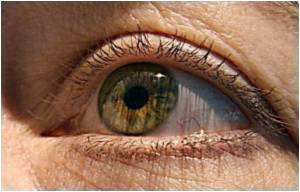
"The gold standard to achieve a lasting change in behaviour and perception is by means of training and practice, which intensively stimulates the brain," explains Hubert Dinse from the RUB's Institute of Neuroinformatics.
"In case of learning through passive stimulation, training is replaced by stimulus exposure, but in order to be effective, it has to conform to specially adapted timing." As the scientists have shown, visual perception is impaired after slow visual stimulation, whereas rapid stimulation leads to improved perception.
"In this way, we can determine the direction of learning processes by simple selection of the stimulation frequency" Dinse sums up. The changes were remarkably stable, as the effects remained unchanged for ten days.
The findings of the Bochum and Dortmund neuroscientists suggest that instead of training or electrically stimulating cells, selective behavioural changes can be evoked in humans by using equivalently timed visual stimulation of only forty minutes duration.
"Whether a sensory event is able to attract attention depends on its strength," states Beste. Using passive visual stimulation, depending on the frequency, stimuli can be weakened or strengthened, thus changing the attentional process.
Advertisement
Source-ANI









